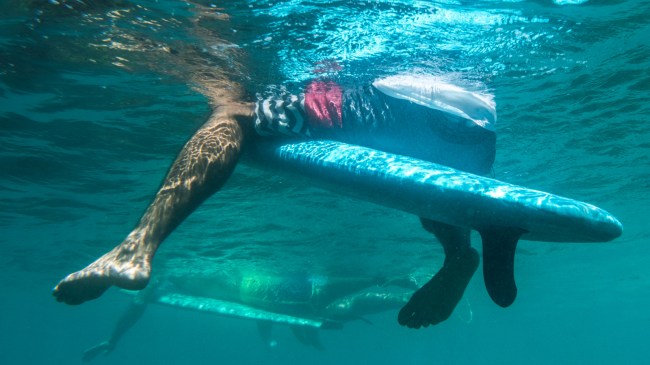Getty Image
Being attacked by a shark is pretty low on the list of things you actually need to worry about based on the statistics, but galeophobia is still a fairly common fear that makes plenty of people wary about wading into the water. However, an experiment that was recently conducted in Australia may have uncovered a surprisingly simple preventative measure.
A grand total of 69 people were unfortunate enough to end up on the receiving end of the “unprovoked” shark attacks that were recorded over the course of 2023. 10 of those interactions resulted in a fatality, and while the United States was home to more than half of the overall incidents with 36, Australia led the pack as far as deaths are concerned with four.
The same set of numbers determined 42% of the attacks involved surfers and people participating in similar “board sports,” who have historically been disproportionately represented in shark attack totals due to an underwater silhouette that resembles common shark prey like seals, sea lions, and other pinnipeds.
According to The Times, Dr. Laura Ryan has a pretty natural interest in that particular conundrum when you consider she’s a surfer and biologist specializing in shark behavior based in Sydney, Australia. She decided to conduct an experiment with the help of her colleagues at Macquarie University to test a hypothesis concerning a possible shark attack deterrent, and it seems like she may have stumbled across a potential breakthrough.
According to Ryan, part of the reason surfers tend to attract the attention of sharks is the poor eyesight that makes it difficult for the animals to differentiate between humans on a board and actual prey. She theorized you may be able to ward off the sharks by using bright lights to disguise the silhouettes—and she may be onto something based on the results.
Ryan led an experiment that was conducted over the course of 500 hours in the great white-infested waters of Mossel Bay off the southern coast of South Africa. It involved the use of unadulterated seal-shaped foam decoys that served as a control along with others that were fitted with LED lights of varied brightness arranged in different patterns to see how sharks would respond.
The fake seals were towed with boats in an experiment where the unlit decoys were attacked more than any of their illuminated counterparts. Dimmer settings (and strobe lighting) reduced attacks but failed to eliminate them, but the brightest decoys managed to emerge entirely unscathed.
The outlet notes that discovery led to Ryan and the rest of the team coming up with the design for a lighting array that could be attached to “surfboards, kayaks or on wetsuits” to keep sharks at bay. There’s no way to know if it will be 100% effective, but it certainly seems like a step in the right direction.

